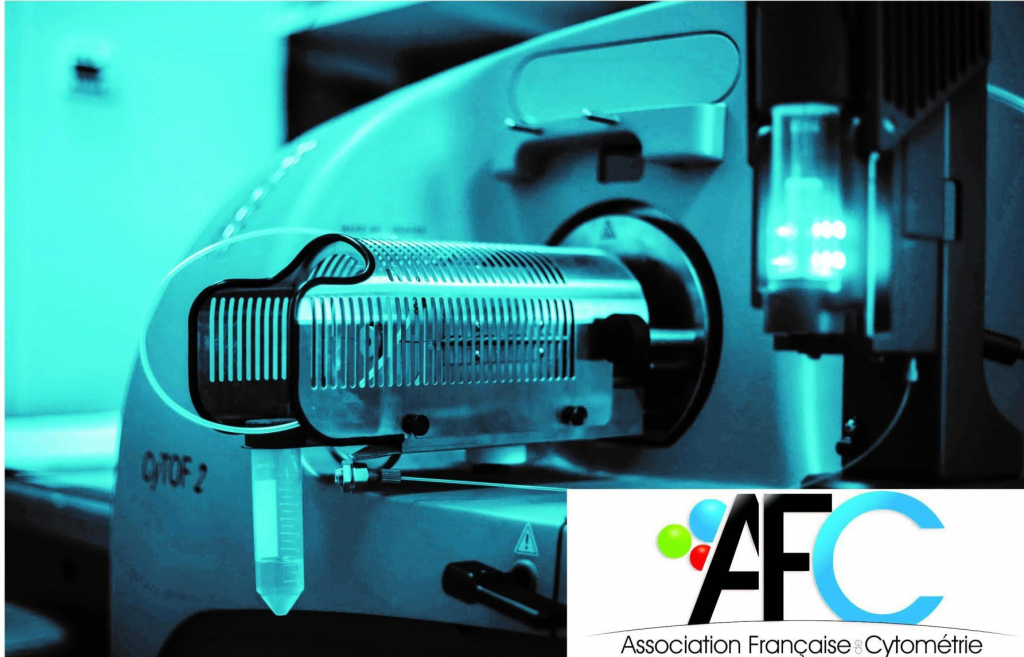
Groupe Cytométrie de masse AFC : Caractérisation des lymphocytes T régulateur dans le cancer du poumon.

Le groupe de travail “Cytométrie de masse » de l’Association Française de Cytométrie est heureux de vous inviter à son prochain webinaire :
Mardi 7 novembre 2023 à 12h30
Caractérisation des lymphocytes T régulateur dans le cancer du poumon.
Présenté par Stephane Fattori
Immunomonitoring department, Pauli Calmettes Institute, CRM, Marseille
Lien Zoom : https://univ amu fr.zoom.us/j/86931336119?pwd= TEgzb01ZM0FucFhKb3hEdmk5VEpKZz09
Login code: 725552
Abstract :
Triple negative breast cancer (TNBC) is the deadliest subtype of breast cancer Standard treatments for
patients with early stage, locally advanced or metastatic TNBC include the combination of neoadjuvant
chemotherapy and pembrolizumab, an immune checkpoint blockade targeting the programmed cell
death 1 (PD-1) receptor PD-1 blockade reinvigorate tumor antigen specific CD8+ T cells in primary TNBC.
However, approximately 40 and 80 of early stage and advanced or metastatic TNBC are resistant to
PD 1 blockade therapy, respectively.
Regulatory T cells (Tregs) are an immunosuppressive subset of CD4+ T cells essential for maintaining self
tolerance in physiological settings. Abundant tumor infiltration by Tregs harbouring hallmarks of highly
suppressive CD25high effector Tregs (eTregs) has been associated with resistance to PD 1 blockade in
cancer indications for which pembrolizumab was approved much earlier than for TNBC, such as non
small cell lung cancer. In contrast, in TNBC, the prognostic value of intratumoral Tregs remains
controversial and no association between baseline levels of eTregs and responses to PD 1 blockade
therapy has been reported, despite the clinical significance of this cancer indication. In the present
thesis, we used single cell technologies to dissect the nature and function of eTreg during TNBC
progression. We found that an immunosuppressive TNBC microenvironment resistant to PD-1 blockade
therapy is marked by an imbalance between effector CD8+ T cells and CD25 high eTregs. We further
identified CD25 as the most selective surface marker of eTregs in primary TNBC and associated
metastases for limited on target/off target effects. In a syngeneic TNBC model, selective Treg depletion
by a next generation anti-CD25 monoclonal antibody (mAb; ALD 2510; Alderaan Biotechnology)
synergized with PD-1 blockade to safely mediate durable tumor growth control by increasing effector
αβCD8+ T cell/Treg ratios in tumors and in the peripheral blood Overall, we propose that Treg depletion
by next generation anti-CD25 mAb could improve clinical responses to PD-1 blockade therapy in patients
with TNBC at different stage of the disease
